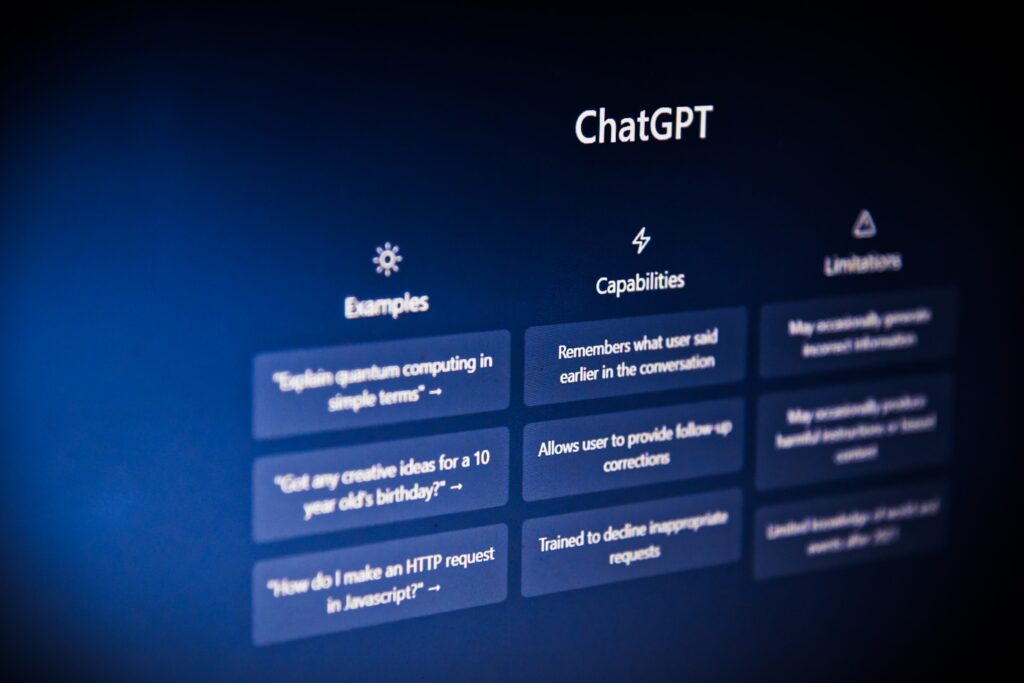Imagine a world where your high-ticket software isn’t just another product on the market, but a coveted asset in the tech industry. This is not just a dream, it’s a very achievable reality. In “How Can You License And Sell High-ticket Software Successfully?”, you’re going to embark on an enlightening journey through the complex world of software licensing and selling. With the guide’s sage advice, you’ll unveil the secrets, strategies, and solutions that will propell your software from humble beginnings to soaring heights in the market.
Understanding Software Licensing
Dive into the complex world of software licensing where mysteries unfold and business strategies evolve. It is through grasping the nuances of software licensing that you can prepare a successful battleground for your high-ticket software.
Key Concepts in Software Licensing
Let’s set the stage by understanding key concepts in software licensing. Licenses, at their core, represent an agreement or contract between you, the software maker, and the one who uses it. Important terms include ‘licensee’ (the user), ‘licensor’ (you or your company), and ‘EULA’ (End-User License Agreement), which is the overriding legal document encapsulating the agreement.
Types of Software Licenses
Step into a world with diversity echoing everywhere in the form of different types of software licenses. Common types include open source licenses which invite the world to modify your software, proprietary licenses which convey a sense of exclusivity, and academic licenses that are simply variations purposed for specific users.

Benefits of Software Licensing
Imagine your software as a charming garden. Software licensing is the gatekeeper, it protects your intellectual property, controls profits and supports customer relationship management. It sets out the rules and provides safe boundaries within which your valued customers can play.
Legal Aspects of Software Licensing
Keep an eye on the legal aspect of software licensing; although seemingly daunting, it is actually your guardian in disguise. An understanding of copyright laws, patent rights, and contract terms will shield you from undesirable confrontations and tend to your business’ legal health.
Selecting the Right Licensing Model
Picture yourself in a grand library. The rows of books represent different licensing models. Choose wisely to influence the success of your software.
Open Source License
Gift your software the wings of collaboration with an open source license. Here, developers across the globe can contribute with their unique perspectives and share innovations.
Perpetual License
Make your software a one-time splendid treat for customers with a perpetual license. With its one-time fee for lifelong usage, invite a sense of ownership in your customers.
Subscription License
In the ever-evolving software world, a subscription license is like a flowing river. Regular updates and support in exchange for a periodical payment keeps the relationship fresh and flourishing between you and your clients.
Multi-License
Multi-license knocks the door of businesses; it allows a single software to be run on multiple systems. A blessing for businesses where software needs to echo through various departments.
Comparing the Different Licensing Models
Each licensing model is akin to a different color on an artist’s palette. Choose the shade that most accurately reflects the essence of your software and the needs of your customer base.
Setting High-Ticket Pricing Strategy
Like a map to a treasure, your high-ticket pricing strategy leads your software to premiums.
Understanding High-Ticket Pricing
High-ticket pricing is like a precious jewel, enriching the trading game. It involves setting high prices for your software representing value, exclusivity, and premium features.
Reasons for High-Ticket Pricing
High-ticket pricing isn’t a whim, but a calculated step. It blesses your software with the aura of premium quality and allows a healthy return on investment, despite a possibly smaller customer base.
Factors to Consider When Setting High-Ticket Prices
The road to setting high-ticket prices isn’t devoid of bumps and turns. It demands attention to various factors like a deep understanding of your product, its unique offerings, demographic needs and competitor analysis.
Developing a Marketing Strategy
A well-crafted marketing strategy is your reliable compass guiding your software towards the intended customer base.
Identifying Target Market
The first step to building a sound marketing strategy is akin to sieving sand for gold. You identify your target market based on demographics, psychographics, geographics, and behavioral characteristics.
Defining Unique Selling Proposition
Carve out the unique selling proposition of your software, like a sculptor chiselling a block of marble. This factor differentiates your software from the competition.
Marketing Channels for High-Ticket Software
Plot your journey through dynamic, high-impact marketing channels. From social media to blogs, press releases to webinars, each channel can amplify your reach.
Positioning Your Software in the Market
With your strategy in hand, position your software like a beacon in the market landscape. This aligns with the perception you want your software to evoke and how it fits within its competitive space.
B2B Sales Techniques for High-Ticket Software
Transform yourself into an experienced trader in your journey of B2B sales.
Understanding B2B Sales
Step into the realm of B2B sales where you, as a software vendor, navigate through complex networks of decision makers to sell your software.
Strategies for B2B Sales Success
Equip yourself with strategies like relationship building, educating clients, social proof and more to charm your way into B2B sales success.
Dealing with Long Sales Cycles
While the road to high-ticket B2B sales is rewarding, it often opens to a path of long sales cycles. However, patience and persistence can steer you to success.
Negotiation Skills for High-Ticket Sales
Transform into a master negotiator and you unleash the power to navigate your way to successful high-ticket sales.
Importance of Negotiation Skills
Negotiation skills in your armor can be your trusty steed in the adventure of high-ticket software sales. This skill can make or break deals.
Principles of Successful Negotiations
Adopt fundamentals of successful negotiations like preparation, active listening, empathy and compromise. Ascend the ladder of success in high-ticket software sales with these principles as your guide.
Negotiating High-Ticket Software Sales
Like a ballroom dance, negotiating high-ticket software sales involves leading and following, communicating effectively, and finding balance to reach a mutually beneficial agreement.
Customer Support and After Sales Service
Unveil the secret ingredient for ongoing success in your software business – customer support and after-sales service.
Importance of Customer Support
Customer support is the spine of your software business. It nurtures customer satisfaction and loyalty, encouraging repeat business and referrals.
Managing Technical Support Services
Ride the waves of managing technical support services where the tasks include hiring skilled personnel and making your service accessible and effective.
Developing an After-Sales Support Plan
An after-sales support plan, carefully crafted, acts as a safety net for your customers. It builds trust and ensures your customers feel valued even after the sales transaction is complete.
Maintaining Client Relationships
The act of maintaining client relationships is like tending a garden. It requires ongoing efforts and patience, but the result is a blossoming understanding and rapport.
Building Long-Term Client Relationships
Long-term relationships symbolize trust and mutual benefit. Invest time in understanding your clients, offering quality service and maintaining consistent communication.
Strategies for Client Retention
From offering loyalty programs to focusing on customer satisfaction, each strategy for client retention is a significant thread in the fabric of an enduring client relationship.
Handling Client Complaints and Returns
The dark clouds of complaints and returns have a silver lining. They provide an opportunity to turn around a negative situation into a loyalty-building one if handled properly.
Analyzing and Adjusting Strategy
Your journey of software sales is not a one-time event, but a continuous exploration and adjustment of strategies.
Tracking Performance Indicators
Keeping an eye on performance indicators like customer engagement, sales cycle length, and conversion rate can act as your guiding star, indicating the success of your current strategies.
Adjusting the Sales Strategy Based on Feedback
Feedback is like the North wind, stirring up your strategies. It helps you adjust your sails according to the currents of customer behavior, market trends, and competitor actions.
Emerging Trends in Software Sales
Keep an ear out for the whispers of change in the software sales landscape. Incorporate emerging trends into your strategies to ensure their relevance and effectiveness.
Exploring Future Trends in Software Licensing
Unfold the future of software licensing and illuminate your path with forward-thinking strategies.
Impact of Cloud Computing
As cloud computing infiltrates every business sector, the licensing scene is evolving and transforming, making way for SaaS and subscription licensing, appealing to budget-conscious clients.
Software as a Service
The shift to Software as a Service (SaaS) is redefining licensing norms. This shift brings forth the benefits of accessibility, scalability, and flexibility to its users.
Effects of Blockchain on Software Licensing
As the digital beast, Blockchain, roars in the business arena, the landscape of software licensing shivers with anticipation. Blockchain can forge a path towards decentralized and transparent licensing agreements.
Steer through this intriguing labyrinth of software licensing and high-ticket software sales to your journey’s end. Yet, remember, this end is but the beginning of extraordinary customer relationships and business success.


